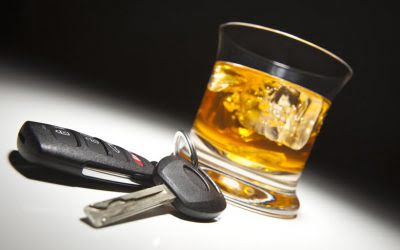O seu carrinho está vazio!
Alcohol and Dopamine: Why We Crave and Struggle to Quit
In the case of memory, researchers have postulated that information is stored in the brain as a change in the level of communication across synapses produced by an external event such as a sight or sound (Bliss and Collingridge 1993). A phenomenon called long-term potentiation (LTP) appears to be fundamental for memory formation (Bliss and Collingridge 1993). LTP is a sudden but lasting increase in the overall level of excitatory neurotransmission in the hippocampus, a brain region involved in memory. In general, LTP amphetamine addiction treatment seems to require activation of glutamate receptors and inhibition of GABAA receptors.

Is alcohol good for mental health?
Alcohol significantly affects the hippocampus, a crucial brain region for memory formation and recall. Acute alcohol consumption can interfere with the creation of new memories, leading to blackouts. Acute alcohol intake can increase serotonin levels, contributing to mood elevation and social disinhibition. This enhanced GABAergic activity results in slowed reflexes, impaired coordination, and decreased anxiety.
Data Availability Statement

In addition, there are dopamine projections from the VTA to the amygdala and the hippocampus, respectively, involved in reward associative learning and declarative memory formation 15, 17. Alcohol dependence, a chronic relapsing psychiatric disorder, is a major cause does alcohol cause dopamine release of mortality and morbidity. The role of dopamine in alcohol‐induced reward as well in the development of alcohol dependence is reviewed herein. Both preclinical and clinical studies have suggested that alcohol activates the mesolimbic dopamine system (defined as a dopamine projection from the ventral tegmental area (VTA) to the nucleus accumbens (NAc, i.e. ventral striatum)) leading to a euphoric sensation.
- These include healthcare providers, addiction specialists, support groups like Alcoholics Anonymous, and online resources provided by organizations such as the National Institute on Alcohol Abuse and Alcoholism (NIAAA).
- There is evidence of a link between serotonin deficiency, impulsivity and drinking behaviour which may explain the role of SSRIs in suppressing alcohol reinforced behaviour in some alcohol-dependent patients.
- Furthermore, the author hopes that the present text will be found useful to novices and experts alike in the field of neurotransmitters in alcoholism.
- Eventually, as the brain tries to balance itself, the same amount of alcohol no longer results in the same level of dopamine release in the brain.
Dopamine Levels: Alcohol’s Impact And Recovery
You’ve probably heard it called the “feel-good” chemical, and that’s not entirely wrong. Dopamine is a neurotransmitter, a chemical messenger that helps nerve cells communicate. Think of it as the brain’s way of saying, “Hey, that was good, let’s do that again!” It’s released when we experience something pleasurable, reinforcing that behavior. It’s not just about pleasure, though; it also plays a role in focus and attention. These include the duration and severity of alcohol use, overall health, age, genetics, and lifestyle factors such as diet, exercise, and stress levels. Some individuals may experience relatively rapid improvements in mood and cognitive function, while others may face a more prolonged recovery process.
- Alcohol interacts with the serotonin system, influencing mood, impulsivity, and cognitive function.
- Research suggests that dopamine levels begin to recover within weeks to months of quitting alcohol, though full restoration of the brain’s reward system may take longer depending on individual factors such as the duration and severity of alcohol use.

Therefore, mechanisms regulating alcohol reinforcement might be different in selectively breed high alcohol‐consuming rats compared to outbreed rats, and this should be investigated in more detail. It should also be mentioned that infusion of the dopamine D1‐like agonist SKF into NAc had no effect on alcohol self‐administration in rats 141. Albeit the data are somewhat contradictory, it might be hypothesized that accumbal as well as ventral tegmental dopamine D2 receptors may regulate alcohol reinforcement in rodents. The mesocorticolimbic dopamine system has an established role in driving the rewarding sensations from natural rewards such as food, sex and exercise, which are important behaviours to ensure our survival 6, 7 as well as among drugs of abuse, including alcohol (for review see 8). The physiological importance of the mesocorticolimbic dopamine system is highlighted by its evolutionary stability and conservation in primitive invertebrates, such as, flatworms, all the way up to primates, including humans. It was identified serendipitously in the https://ecosoberhouse.com/ 1950s when Olds and Milner found that rats self‐administer electrical currents into certain specific brain regions 9.


